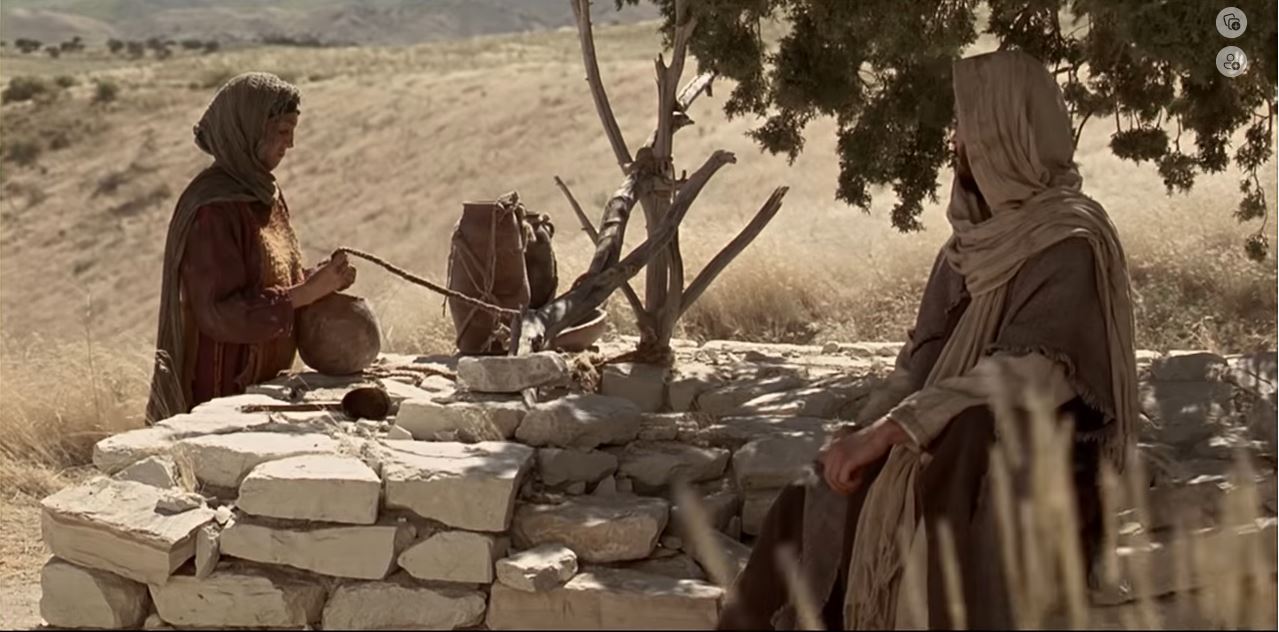
[Pearls Ep 162: Preparing for Sunday.]
This Sunday’s Gospel brings us to the powerful imagery of “living water.”
“Everyone who drinks this water will be thirsty again; but whoever drinks the water I shall give will never thirst; the water I shall give will become in him a spring of water welling up to eternal life.”
It begs the question – what is “dead water?” A current definition might be “most of the water in the vicinity of East Palastine, OH.” But Jesus had something else in mind.
The Jews in Jesus’ day made clear distinctions of “living water.” For example, Jewish ritual purification could only be conducted in a mikvah – a pool of mayim chayim – which is “living water” or “flowing water.” Living water is moving water, fresh water, replenishing water. Rivers, springs, and streams – all are “living water.”
But mayim chayim can also be translated as “non-stagnant water.” That’s not a particularly poetic translation, but it does get us to a good definition of “dead water” – which is, stagnant water.
For the Jews, “dead water” would be water that is, for example, sitting stagnant in a cistern; non-flowing, motionless, stale water.
The Gospel of John goes on to explain that the living water of Christ is the Holy Spirit.
How do we get that living water to flow in our life? The prophet Jeremiah tells us by “trusting in the Lord” and Jesus says “believing in Me.”
This weekend is a good time to reflect on areas of our life that seem motionless and stagnant – relationships that seem beyond repair, temptations that seem to always overpower us, worries that seem to have no solution. Talk about these with Jesus – truly – with great trust and belief in His power to enter in with unforeseen options – currents that stir up movement and new life.
On Monday we’re going to look at very practical examples of Living Water in our everyday life.
Lenten blessings –
Steve and Karen Smith
Interior Life
Postscript: Gospel according to John 4:5-15, 19b-26, 39a, 40-42
Jesus came to a town of Samaria called Sychar, near the plot of land that Jacob had given to his son Joseph. Jacob’s well was there. Jesus, tired from his journey, sat down there at the well. It was about noon.
A woman of Samaria came to draw water. Jesus said to her, “Give me a drink.” His disciples had gone into the town to buy food. The Samaritan woman said to him, “How can you, a Jew, ask me, a Samaritan woman, for a drink?”—For Jews use nothing in common with Samaritans.— Jesus answered and said to her, “If you knew the gift of God and who is saying to you, ‘Give me a drink, ‘ you would have asked him and he would have given you living water.”
The woman said to him, “Sir, you do not even have a bucket and the cistern is deep; where then can you get this living water? Are you greater than our father Jacob, who gave us this cistern and drank from it himself with his children and his flocks?”
Jesus answered and said to her, “Everyone who drinks this water will be thirsty again; but whoever drinks the water I shall give will never thirst; the water I shall give will become in him a spring of water welling up to eternal life.” The woman said to him, “Sir, give me this water, so that I may not be thirsty or have to keep coming here to draw water.
“I can see that you are a prophet. Our ancestors worshiped on this mountain; but you people say that the place to worship is in Jerusalem.” Jesus said to her, “Believe me, woman, the hour is coming when you will worship the Father neither on this mountain nor in Jerusalem. You people worship what you do not understand; we worship what we understand, because salvation is from the Jews.
But the hour is coming, and is now here, when true worshipers will worship the Father in Spirit and truth; and indeed the Father seeks such people to worship him. God is Spirit, and those who worship him must worship in Spirit and truth.” The woman said to him, “I know that the Messiah is coming, the one called the Christ; when he comes, he will tell us everything.” Jesus said to her, “I am he, the one who is speaking with you.”
Many of the Samaritans of that town began to believe in him. When the Samaritans came to him, they invited him to stay with them; and he stayed there two days. Many more began to believe in him because of his word, and they said to the woman, “We no longer believe because of your word; for we have heard for ourselves, and we know that this is truly the savior of the world.”
